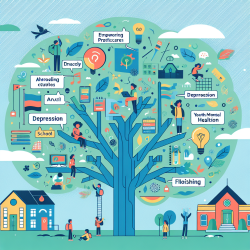Introduction
The COVID-19 pandemic underscored the critical importance of effective Emergency Risk Communication (ERC) in safeguarding public health. A recent study, "Learning from COVID-19: Government Leaders’ Perspectives to Improve Emergency Risk Communication," explores the challenges faced by government leaders worldwide during the pandemic and offers actionable recommendations to enhance future ERC efforts. This blog delves into the key findings of the study and how practitioners can leverage these insights to improve their communication strategies.
Key Principles of Effective Communication
The study identified nine core principles of communication that are essential for effective ERC:
- Timeliness: Providing information promptly to prevent misinformation from taking root.
- Transparency: Being open about what is known and unknown to build public trust.
- Coordination: Ensuring synchronized communication across different government branches.
- Accuracy and Consistency: Maintaining consistent messaging to avoid public confusion.
- Accountability and Integrity: Being accountable for communication decisions and acknowledging mistakes.
- Independence from Politics: Separating scientific communication from political agendas.
- Responsiveness: Addressing the public's concerns and informational needs effectively.
- Equity: Ensuring communication strategies are inclusive and culturally appropriate.
- Trust and Empathy: Building trust through empathetic and open communication.
Recommendations for Practitioners
Based on these principles, the study offers 36 recommendations for government agencies to enhance their ERC capabilities. Practitioners can implement these recommendations to improve their communication strategies:
- Develop Proactive Communication Strategies: Establish permanent communication task forces and lead the narrative rather than reacting to misinformation.
- Enhance Transparency: Clearly communicate the decision-making process and the scientific basis for public health measures.
- Foster Coordination: Create centralized platforms for information dissemination and build relationships across government branches and with neighboring countries.
- Ensure Consistency: Regularly update FAQs and customize them to meet diverse audience needs.
- Promote Accountability: Engage with media across the political spectrum and develop evaluation processes for communication practices.
- Maintain Independence from Politics: Separate scientific communication from political messaging to maintain credibility.
- Improve Responsiveness: Build networks of community leaders to understand and address public concerns.
- Advance Equity: Develop communication strategies that account for linguistic and cultural diversity.
- Build Trust and Empathy: Establish trusted relationships with community leaders and validate public concerns.
Conclusion
The study underscores the need for government leaders to integrate ERC principles into their communication planning and execution. By adopting these recommendations, practitioners can enhance their communication strategies, build public trust, and effectively manage future public health crises. For those interested in delving deeper into the research findings, the original study provides a comprehensive analysis of the challenges and solutions in ERC.
To read the original research paper, please follow this link: Learning from COVID-19: government leaders’ perspectives to improve emergency risk communication.










